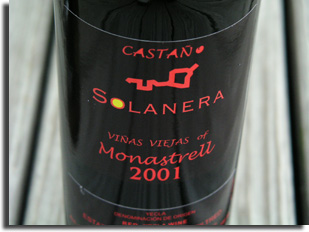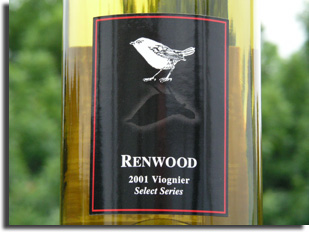|
Rugged, rustic, country wines are un-refined
but delicious
Back when I was a boy, we left the churning metropolis of Centerville,
Ohio every summer and retreated to our ancestral home in the mountains
of Kentucky—Mamaw's house, that is. From the moment my sister
and I stumbled from the car all woozy from the Dramamine and winding
roads, everything in our world was completely different.
The air was suddenly full of smells like coal smoke, horse barn,
rabbit pen, bacon, and tobacco.
Water, normally a constant, tasted different from this hill to
that, and it flowed out of the ground from springs and along the
top of the ground in creeks, not just from the mouth of a tap.
Trees were numerous, close and familiar, and the sunlight came
through them to you, filtered and indirect. When a big one was struck
by lightning, we talked about that tree for a week like it was a
person.
New beds, new food, roosters at dawn. We'd been here a hundred
times already, and it was strange but familiar. Unbeknownst to me
at the time, I was sleeping on the very couch where my parents had
been caught necking in high school.
It was there I first marveled at the distinction and multiplicity
of flavor profiles, how something as universal as potatoes or chicken
could taste one way back home and so entirely different in the country.
City chicken was always "a la king" or "a la Colonel,"
and I still don't really know what "chicken fried steak"
is.
Country chicken was rolled in flour, herbs, and spices and deep-fried
super-hot till crisp in real lard. Sometimes a whole chicken would
be dressed up and roasted in a richly seasoned cast-iron pan that
had only ever been washed with rock salt and water.
After a few weeks, the mountains became almost as familiar to
me as my soybean-suburban life on Ohio's glacial low plain. On returning
to "the city," things appeared unnecessarily contrived
and refined, brighter and more wonderful than needs be, and a little
embarrassing. Food, on the other hand, tasted less like itself and
more like the processing it had been through. The air smelled like
. . . air, just air. It was a great place to live, but you wouldn't
want to visit there.
Air, water, light—that's about 99 percent of what we call
life, and maybe more than 99 percent of wine. Most of the wines
we Americans value are established classics from Europe or super-concentrated
old-vines from California and Australia. Refinement has a high price
tag, but it's not an automatic indicator of how much you're going
to like a wine.
All wines are country wines the same way all coffee is mountain-grown,
except for the rare vineyard within some city limits. Slowly but
surely, I've come to love wines that are rugged, rustic, and rough.
They may lack finesse and sophistication, but more sophisticated
wines are sometimes too tame. Especially in summer, I look for wines
that taste exotic and smell wild and woodsy.
Country Comfort
Mas de Gourgonnier (about $12, distributed nationally by Michael
Skurnik Wines, 516-677-9300 and North Berkeley Imports, 800-622-9088)
This old favorite comes in a funky port-like bottle, and its eccentricity
doesn't stop there. Its flavors are explosive and literally wild:
rosemary, tarragon and lavender lead to raspberry, hay and leather.
Bauxite—unrefined aluminum ore—is named for its hometown,
Les Baux.
 2001
Castana "Solanera" Monastrell (about $10, imported
by European Cellars, 704-358-1565) Its name may mean "black
sun," but the flavors are all red fruit, blackberry and
raspberry. Monastrell the grape is unknown outside Mediterranean
Spain, but with such soft tannins, round approachable flavors,
and a favorable Euro, it could catch on. 2001
Castana "Solanera" Monastrell (about $10, imported
by European Cellars, 704-358-1565) Its name may mean "black
sun," but the flavors are all red fruit, blackberry and
raspberry. Monastrell the grape is unknown outside Mediterranean
Spain, but with such soft tannins, round approachable flavors,
and a favorable Euro, it could catch on.
Mediterranean Spain is one of
Europe's oldest wine growing regions.
|
 2001
Renwood Viognier (about $11, distributed nationally and at
Trader Joe's around the world) This grape came from southern
France where it's grown in a very remote area called Condrieu,
but now new world wine makers are running with it and outstripping
the original in price and quality. Best thing about this Renwood
is the texture: rich, round, viscous, almost oily. The taste
is pretty spectacular too, like pears marinated in wildflowers
and honey. Not bad for about $2 a glass. 2001
Renwood Viognier (about $11, distributed nationally and at
Trader Joe's around the world) This grape came from southern
France where it's grown in a very remote area called Condrieu,
but now new world wine makers are running with it and outstripping
the original in price and quality. Best thing about this Renwood
is the texture: rich, round, viscous, almost oily. The taste
is pretty spectacular too, like pears marinated in wildflowers
and honey. Not bad for about $2 a glass.
Rich, almost viscous, a white
wine with the body of a red. |
A Correction (Sort Of)
Maybe I was wrong about the American boycott of French wines after
all. Not wrong about its being stupid and misguided and pointlessly
hurtful to your local wine shop, but wrong about whether it's happening
or not.
According to the Wine Spectator, French wine sales in the U.S.
through May are down more than 26 percent from the same time last
year. In comparison, U.S. wines aren't exactly rushing in to fill
the void. They're up about 2 percent in volume but down about 2
percent in value.
Here in Euro-loving Boston, we get loads of excellent French wine
that never make it inland. California winemakers I meet in Boston
always marvel at how much cheap and interesting European juice we
get. It sounds like they have to scramble for anything other than
mainstream French and Italians.
We easterners must buy and drink everything before it can get
past the Hudson River. At least that's my excuse for not seeing
something as big as a one-quarter drop in sales.
I still don't see any resistance to the increasingly delicious
and affordable French wines that are arriving these days, especially
the 2000 vintages from Bordeaux and the Cotes-du-Rhone.
Jonathon Alsop
IN VINO
VERITAS
|
